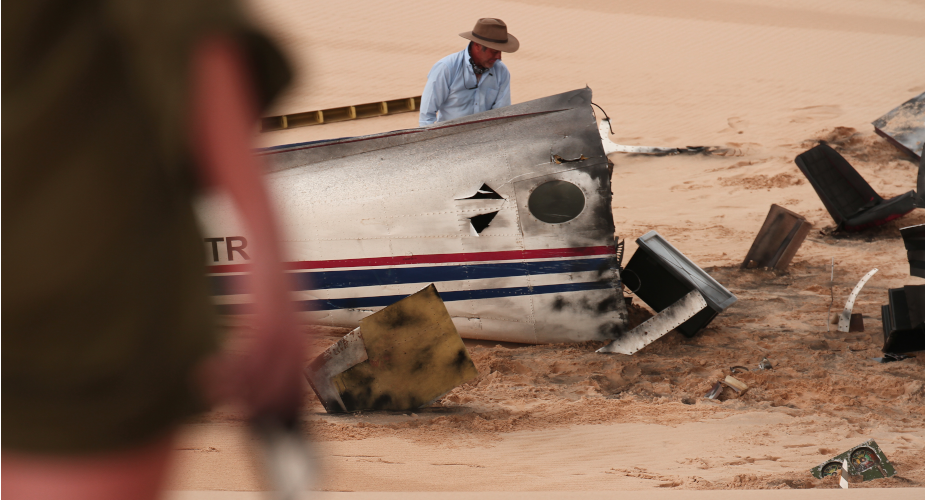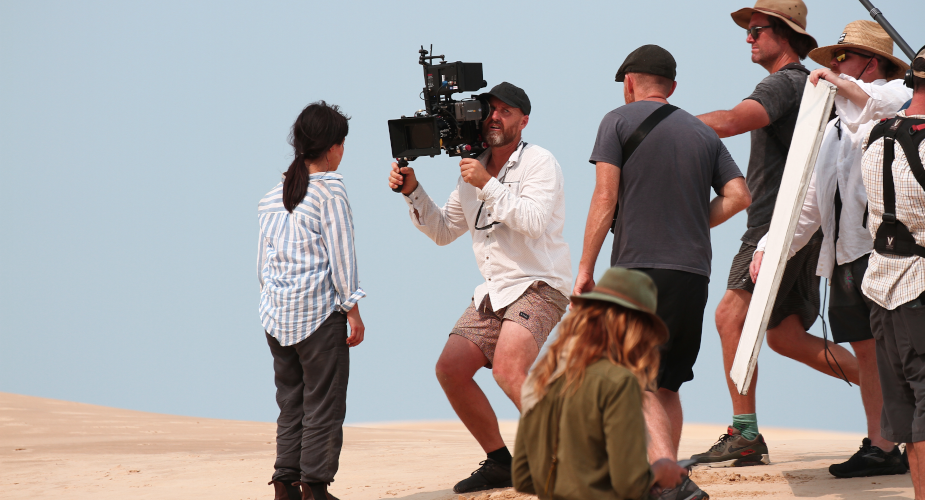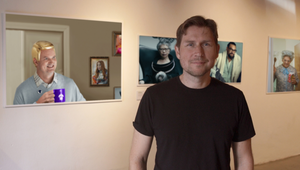
Your Shot: How an Action-Filled Fake Film Trailer is Highlighting Australian Illiteracy

The United Nations believe that giving men and women equal access to affordable and quality education can help fix many of the world’s problems. With this in mind they worked on a project in Australia with creative agency Emotive and production company Good Oil Films to create The Trojan Trailer to raise awareness around the importance of quality education, which forms part of the UN’s Global Goals for sustainable development.
In tackling the brief, Emotive discovered that over half a million Australians between the ages of 15 and 85 are illiterate and knew that they’d need to find an engaging way to express that. The Trojan Trailer is, as the name suggests, a trailer but the way that the chilling messages appear throughout the spot are depicted through a plane crash ensure that it is a clip unlikely to be passed over.
Ben Clare group creative director at Emotive speaks to LBB’s Natasha Patel about inspiring change throughout the world and how support from YouTube and the UN team carried the project through.
LBB> What was the initial brief for this campaign?
Ben> The brief was to use the creative possibilities of sequential storytelling on YouTube to raise awareness of the United Nations’ Global Goal number four – Quality Education.
LBB> What was the timescale like?
Ben> It was initially meant to be eight weeks, from briefing to the big unveiling at Tribeca X, part of the Tribeca Film Festival in April. However, we all know the world got turned upside down and so we ended up having a little more time to finish the campaign than we would’ve otherwise, as everything got postponed.
LBB> What sort of production challenges did you face?
Ben> There were quite a few challenges, not least of which was aligning the budget with our ambition. When we embarked on this adventure, we dreamed of creating a film that felt truly different, and nothing at all like a traditional advertisement. So we worked closely with Good Oil films and director, Michelle Savill to bring the idea to life in a way that felt authentic to the genre of movie trailers.
One of the hardest components of production was dragging a 30ft plane fuselage into the sand dunes on the NSW north coast, and setting it alight. For perspective, the main scenes were filmed under a scorching summer’s sun, just after what had been Australia’s worst summer of bushfires in history. The planning and consideration that had to go into filming this in a safe manner was all the more challenging.
LBB> What inspired the idea of a plane crash?
Ben> Part of the brief was to make it locally relevant, at an insight and executional level. We always wanted the theme of the ‘movie’ to mirror the challenges of a person facing illiteracy, and so the premise quickly became about being stranded or left behind. Crash-landing in the harsh and desolate Australian outback, with seemingly no way to reach help felt like a striking visual that would seem plausible as a movie trailer.
The entire thing was filmed in camera under strict safety guidelines. We did however add an ominous looking storm to the skyline as our protagonist flies her plane towards it in the opening shots.

LBB> I love the trailer format! What made you want to do it that way and was the client on board with the idea?
Ben> There were a couple of reasons we chose the movie trailer format. To begin with, trailers are one of the most searched categories on YouTube. And from the outset, we knew if we wanted our message to land, we had to deliver it in a non-intrusive way.
We really wanted to make people part of the story, not the target of it. And delivering the message that 630,000 Australians are illiterate by way of a powerful demonstration felt it would be more impactful than anything that could be said or asserted.
YouTube and our UN clients were on board with the premise immediately. They loved the subversive nature of it, and its ability to draw in an audience hovering over the skip button.
LBB> What made you want to work on this particular project?
Ben> Two things. Firstly, we were inspired by the potential of sequential storytelling in YouTube, in telling a much larger narrative, in a clever way.
Secondly, and perhaps more importantly, it’s not every day you’re given the opportunity to help drive real, meaningful change for an organisation with values beyond profits. Who could pass up an opportunity to with United Nations on such a significant challenge? Moreover, there was an internal belief that if you want to fix the world’s problems, you have to start by fixing education. It’s fundamental to betterment of humanity, and yet even in developed countries, we take it for granted.

LBB> What challenges did you face working around lockdown?
Ben> Fortunately we shot the bulk of this just before lockdown measures became serious enough to impact the shoot. However, editing the footage, and doing the post-production became a logistical nightmare.
Half the rushes were in New Zealand with our director Michelle, and because of New Zealand’s extreme restrictions, there was no way to move them around. We couldn’t even put them on a plane to Australia. And of course, trying to edit something remotely has its own unique challenges, but I think everyone did a stellar job under the circumstances.
LBB> How involved were the United Nations team in helping with parts of the campaign?
Ben> Thankfully they were really involved and able to share insights around what had and hadn’t worked in the past. We spent a great deal of time going through the messaging and branding with them to ensure it was simple enough to retain, without compromising the misdirect.
LBB> Is this a message you hope is adapted throughout the world?
Ben> Whether it is delivered in the same style or not, I do think there’s a real opportunity for every government around the world to look at the state of education in their country, and improve it in every measure. Over the past decade, major progress has been made towards increasing access to education and school enrolment rates at all levels. Nevertheless, it’s something we often take for granted, and quickly forget the alarming number of individuals left behind.













